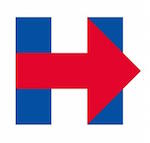|
Twee as gently caress posted:Well my opinion has changed, yes. I'm curius, if the secular FSA attacked and purged fundamentalist extremists to stop them from reaching power would you support them? That action would be bloody and brutal, have no questions about it. But would you still support the FSA?
|
|
|
|

|
| # ? Jun 9, 2024 20:31 |
|
Mans posted:I'm curius, if the secular FSA attacked and purged fundamentalist extremists to stop them from reaching power would you support them? That action would be bloody and brutal, have no questions about it. But would you still support the FSA? Fighting to remove a dictatorship, or fighting to prevent those who want to establish a dictatorship from reaching their goal, is always right in my eyes. That is, as long as your goal is to replace it with a democracy or uphold the already existing democracy. If the FSA turned their hypothetical weapons on AN/AQI to prevent them from establishing a theocratic dictatorship in Syria after Assad's fall, yes I would support them, as long as it is in the optic of establishing a democracy afterwards. Otherwise, no I would not.
|
|
|
|
Mans posted:I'm curius, if the secular FSA attacked and purged fundamentalist extremists to stop them from reaching power would you support them? That action would be bloody and brutal, have no questions about it. But would you still support the FSA? I rather support people who will listen to logic and react to situation based on facts rather loony fools who believe every dream they are having are divine messages from allah and that their opinions are their god's opinion therefore could not be wrong. Example of the latter could be seen from Iran Chief Mullah and Egypt new prime minister
|
|
|
|
Al Jazeera English reporting that Hezbollah forces are backing the Syrian army in Qusayr, government threatening missile retaliation against Israel in the case of further intervention.
|
|
|
|
I think the oppsition missed a big oppertunity on the 11th Dec, when the SNC was recognised as the legitimate government of Syria by most regional and western powers and at the same time Al Nusra was recognised as a terrorist organisation. Basically a very unsubtle signal that "we'll support you, as long as you get your poo poo together". Unfortunately the SNC didn't get their poo poo together even to the minimal standards of basic organisation that the Libyan rebels had, and also instead of denouncing Al Nusra who were even then well known dickheads, denounced western powers for declaring them terrorists. I'm pretty sure that the SNC still hasn't denounced Al Nusra, the closest they seemed to come was Khatabi 'rejecting' the merger between Al Nusra and IQI. 6 months after the SNC was formed and declared the government of Syria, and a year since the opposition gained undisputed control of tracts of Northern Syria, the SNC still seems to have absolutely no control, influence or authority inside Syria. Even if the west wanted to back them...frankly, there doesn't seem anything to back.
|
|
|
|
Twee as gently caress posted:Well my opinion has changed, yes. Maybe I phrased it poorly, but my point is that the general perspectives remain the same. Your opinion changed to one that has been around for well over a year. "When the FSA and secular elements were firmly in control of the rebellion." It's debatable that this point ever existed, and it's been argued that it even if it did, it was no longer the case since before JAN was even JAN. When all we knew was that there were salafists fighting in Syria. People were saying "now that they've been sidelined and are more or less irrelevant at that point" before the opposition even accomplished any of their major diplomatic victories, like becoming recognized as the sole legitimate representatives of the Syrian people by most of the world, and gaining Syria's seat in the Arab League. So yes, people have changed their perspectives, but not in any drastic way. The developments politically seem pretty stagnant to me. quote:Frankly, Al-Nusra in power in Syria sounds to me like an even worse scenario than Assad staying in power that this point. Not to mention the severe ethnic cleansing that is bound to happen if they were to take over. Sorry but the idea of these people in power and access to the chemical and biological weapons from the Assad regime sounds almost as bad as the Taliban taking over Pakistan. Terrifying scenario. Mans posted:I'm curius, if the secular FSA attacked and purged fundamentalist extremists to stop them from reaching power would you support them? That action would be bloody and brutal, have no questions about it. But would you still support the FSA? One of the more interesting things about this conflict has been watching the development of al-Nusra in context with the rest of the opposition. At first, they seemed dependent on foreign funding, indifferent to the Syrian people of all ethnicities, and were fighting for control. It was portrayed immediately as a conflicting interest for power that the Syrian rebels would have to address in the future, perhaps even in sectarian warfare after the regime fell. Yet predicted tensions between al-Nusra and the FSA seem to have yet to truly develop. As time has gone on, JAN's reliance on outside interests has certainly become less pronounced as their military successes have provided them with a poo poo ton of equipment. Whether or not that, and the time spent fighting with Syrians has affected their loyalty to earlier interests remains to be seen. Alongside of that, the opposition has only condemned them for declaring ties with al-Qaeda. Other than that, the pronounced sentiment seems to be that JAN are good guys and good fighters. With that in mind, it's hard to pinpoint who is really the biggest destabilizing force within the opposition, and who is the most responsible for pushing genocide and committing atrocities. They've become so intertwined with the opposition that they are basically the same entity. In fact, I've seen quite a few interviews where people are questioned about fears of future conflict with JAN, and they claim that such rumors are spread by people who wish to keep Syria divided, and that if anyone plans to divide Syria, they will have to come through both the FSA and JAN to do so.  The crazy part is that the opposition have extremely harsh things to say about no-poo poo extremists like the ISI, and regional powers interfering for personal gain. JAN seems mysteriously exempt from this. Doubtless, many Syrians fight with JAN, and many from JAN fight with the FSA simply due to how unorganized this war is. So, with all this in mind, It's hard to project what kind of influence JAN will be in the future. Qatar and Saudi Arabia seem to be focusing on pushing their interests on the opposition through political means rather than by sending in units, not to say that they've abandoned doing so. The crazy part is that the opposition have extremely harsh things to say about no-poo poo extremists like the ISI, and regional powers interfering for personal gain. JAN seems mysteriously exempt from this. Doubtless, many Syrians fight with JAN, and many from JAN fight with the FSA simply due to how unorganized this war is. So, with all this in mind, It's hard to project what kind of influence JAN will be in the future. Qatar and Saudi Arabia seem to be focusing on pushing their interests on the opposition through political means rather than by sending in units, not to say that they've abandoned doing so. JAN really is it's own master right now. I'm still not sure of what to think about how their presence will effect Syria in the future, as things like suicide bombings, the murdering of prisoners, and other horrible acts perpetrated by the opposition seemed to become more pronounced directly in proportion to their influence, but I'm a lot less scared about it than I used to be. Sethmaster posted:I rather support people who will listen to logic and react to situation based on facts rather loony fools who believe every dream they are having are divine messages from allah and that their opinions are their god's opinion therefore could not be wrong. And this is why it's dishonest to euphemistically refer to not-salafists as "secular." If you're playing the militant atheist card, you're not going to find any more common ground among "secular" groups then you would the Muslim Brotherhood.
|
|
|
|
Volkerball posted:
My opinion is that the "secular" or as i called them "non-fanatics" groups is the lesser of two evils. A group that can be reasoned with is far better than a group which upholds theirs beliefs to be the end all and be all of everything. However, I believe that the religious fanatics are in almost total control of the rebels as religion/God is pretty much most people turn to in time of strife and hardship. Seems to me that despite Assad hatred of Israel, it is much better for the world, particularly the western side for Assad to win the civil war. If he win, his forces will probably spend decades to rebuild and reinforce his position, meaning no trouble from him for quite some time. If the rebels win, then all the weapons will be up for grabs by religious fanatics, especially terrorist cells sponsored by the Arab Saudi princes.
|
|
|
|
Sethmaster posted:My opinion is that the "secular" or as i called them "non-fanatics" groups is the lesser of two evils. A group that can be reasoned with is far better than a group which upholds theirs beliefs to be the end all and be all of everything. However, I believe that the religious fanatics are in almost total control of the rebels as religion/God is pretty much most people turn to in time of strife and hardship. E: Perhaps I was being an ill-informed idiot. EXAKT Science fucked around with this message at 21:47 on May 19, 2013 |
|
|
|
EXAKT Science posted:For future reference, "I have absolutely no understanding of ME politics or conflicts" is a lot fewer words and saves time for everyone who wants to read actual informed commentary. What rubbed you wrong with those two statements, exactly? While the first one is something we could debate, the second one seems spot on to me.
|
|
|
|
Twee as gently caress posted:What rubbed you wrong with those two statements, exactly? While the first one is something we could debate, the second one seems spot on to me. It was much more the first point than, the second, especially upon re-reading the post. It seemed to me to be a crass oversimplification of the interactions between politics and religion.
|
|
|
|
EXAKT Science posted:It was much more the first point than, the second, especially upon re-reading the post. It seemed to me to be a crass oversimplification of the interactions between politics and religion. The only contention I have with the first point is that I don't believe people turn to religion in rebellions like this, rather than the people who were extremely religious are more likely to pick up weapons and fight in rebellions like this.
|
|
|
|
This whole thing is a clusterfuck but Assad winning is the worst-case scenario long-term for everybody. Even though he's secular, he's essentially a fascist and his rule is one of a minority coalition ruling over a majority, which is scarcely a recipe for anything but brutality and oppression.
|
|
|
|
You guys are coming to a consensus about the second paragraph? Let me try, then:Sethmaster posted:Seems to me that despite Assad hatred of Israel, it is much better for the world, particularly the western side for Assad to win the civil war. If he win, his forces will probably spend decades to rebuild and reinforce his position, meaning no trouble from him for quite some time. If the rebels win, then all the weapons will be up for grabs by religious fanatics, especially terrorist cells sponsored by the Arab Saudi princes. "the western side" the cold war will never end. The western side in what? Can we still justify simplifying global politics to 'sides' or 'the west' after the Cold War gave us such a thorough lesson about how wrong this was? "no trouble from him for quite some time [except of course for all those Syrians but gently caress them right? Oh and also for Lebanon, obviously, and Israel and the Kurds and pretty much anyone in the region but whatever right?]" "Short term fears are far more important than long term improvements also gently caress democracy if it's inconvenient." - oh you didn't say this one. Huh. Could've sworn that's what I read.
|
|
|
|
R. Mute posted:"Short term fears are far more important than long term improvements also gently caress democracy if it's inconvenient." - oh you didn't say this one. Huh. Could've sworn that's what I read. Will it really be Democracy if the majority is gonna poo poo all over the minorities after the conflict and there are absolutely no safeguards against it such as independent courts or constutions. Heck poo poo all over them is probably putting it mildly. More like ethnic cleansing and brutal oppression. There are pretty much no good guys in the Syrian conflict at the moment. The few that were there in the start, have been marginalized almost completely now. Edit: If Obama appointed himself God Emperor of US I'd think he was an rear end in a top hat and he should be removed. Doesn't mean I would support the hundreds of insane Tea Party militias that would oppose him. Baron FU fucked around with this message at 22:20 on May 19, 2013 |
|
|
|
R. Mute posted:You guys are coming to a consensus about the second paragraph? Let me try, then: Right now the choices are between - a brutal dictator at the helm, oppressing his own people and most likely massacring many of them in relation for the rebellion . and - a brutal religious dictator at the helm, oppressing his own people and forcing his brand of religion on them, massacring many minorities in retaliation for the rebellion while openly giving support and weapons to terrorist groups, further destabilizing the region. quote:"the western side" the cold war will never end. The western side in what? Can we still justify simplifying global politics to 'sides' or 'the west' after the Cold War gave us such a thorough lesson about how wrong this was? Well right now China and Russia are kind of responsible for making this a West versus China/Russia/Iran axis. quote:"no trouble from him for quite some time [except of course for all those Syrians but gently caress them right? Oh and also for Lebanon, obviously, and Israel and the Kurds and pretty much anyone in the region but whatever right?]" Say what you want about Assad, for the last 20 years Assad has mostly kept to himself while occasionally meddling in Lebanese affairs and some arms smuggling for terrorist groups at the behest of Iran, but otherwise has been pretty calm and good for relative stability in the region. Al-Nusra/AQI have already sworn that once they take over Syria, they are going after the Golan and declaring war on the Zionist entity until it disappears. Not to mention what is going to happen to all these chemical and biological weapons. quote:"Short term fears are far more important than long term improvements also gently caress democracy if it's inconvenient." - oh you didn't say this one. Huh. Could've sworn that's what I read. I'm sorry, are you under the impression that Al-Nusra/AQI will in fact depose Bashar and then let Syrians vote for his successor? Bashar Assad is an absolute monster, but right now the only possible replacement seems to spell much worse troubles for the future, short-term, mid-term and long-term.
|
|
|
|
Let's just ignore the 100,000 Syrians already brutally murdered by the current regime, which has no qualms about massacring villages full of Sunnis and carpet-bombing its own cities to rubble. When your own government has roving torture squads and has incinerated the majority of its cities outside of the capitol, you've pretty much already hit rock bottom. Just because they're secular doesn't mean they're the lesser evil. EDIT: And as far as "Stability for the region", Assad was a very active participant in Iraq's civil war and major supporter of Sunni jihadi groups, which is coming back to bite him in the rear end now. Sergg fucked around with this message at 22:33 on May 19, 2013 |
|
|
|
Sergg posted:EDIT: And as far as "Stability for the region", Assad was a very active participant in Iraq's civil war and major supporter of Sunni jihadi groups, which is coming back to bite him in the rear end now. So you agree that the west probably shouldn't be supporting the rebels then. Since it will probably come back to bite them at some later point in time.
|
|
|
|
I'm seeing reports that significant numbers of Hezbollah members are arriving in hospitals in Beirut due to the fighting in Qusayr, which has turned into less of a walkover than they had hoped.
|
|
|
|
Various sources (including pro-Hezbollah facebook pages) are giving the names of 16 Hezbollah members killed in fighting in and around Qusayr today. That would be the highest number of admitted Hezbollah fatalities in a single day in forever (certainly since 2006, if not earlier). This should emphasize the importance of the battle for the organization, as they probably would not have incurred such losses unless their fighters were spearheading the attack, and not just supporting it. This battle pits Hezbollah in a more conventional combat than its forces have been used to and its interesting to see how it will rise to the challenge. Names of hezbollah dead (all in Arabic): Pro Hezbollah facebook page https://www.facebook.com/SYria.Al.Assad.SYR/posts/516457181747851:0 Edit: Same page also published an appeal for blood donation from the Rasoul al A'azam Hospital, which is located in the Hezbollah-controlled suburbs of Beirut. From the Lebanese newspaper An-Nahar, includes origins of some of the dead (at villages in the Beqaa region) http://www.annahar.com/article/3478...%B5%D9%8A%D8%B1 Herostratus fucked around with this message at 23:03 on May 19, 2013 |
|
|
|
Baron FU posted:So you agree that the west probably shouldn't be supporting the rebels then. Since it will probably come back to bite them at some later point in time. I think the West should be supporting secular rebel groups like the FSA, but even that may come back to bite us in the rear end, which is why our government is so hesitant to further involve itself, but paradoxically that hesitation increases the power and influence of the radical Islamists whose backers have no such compunction or restraint. EDIT: Also a lot of fighters are with JAN just because they're competent and well-supplied. They care moreso about whether they have bullets than the ideology of their umbrella organization. Sergg fucked around with this message at 22:56 on May 19, 2013 |
|
|
|
Interesting article from the Guardian : http://www.guardian.co.uk/world/2013/may/19/eu-syria-oil-jihadist-al-qaidaquote:EU decision to lift Syrian oil sanctions boosts jihadist groups: What interests me the most isn't the ideology of the groups that secured the oil, but the fact that the war in parts of Syria has become "commercialized", as one quote in there mentions. It sort of reminds me of the Congo war, with militias camping on valuable resources to make money and exploiting the local population to extract the resources. The fact that Al-Nusra might be cutting deals with the Assad regime over pipelines is pretty telling if true.
|
|
|
|
New Division posted:Interesting article from the Guardian : http://www.guardian.co.uk/world/2013/may/19/eu-syria-oil-jihadist-al-qaida To me in a lot of ways it harkens back to fighting in medieval and renaissance Europe. Roving bands of fighters with strength in the dozens to hundreds banded together into larger formations and occasionally on their own, some vaguely political, some fortune hunters, some merely desperate with nothing to do but join in the fighting. Most led by charismatic commanders with lots of self promotion to get new recruits and bigger cuts of the spoils. All driven by support from the royal deep pockets far removed from the actual fighting.
|
|
|
|
It sounds similar to the Balkan wars, where enemy commanders would coordinate on the smuggling of cigarettes. Everyone likes money.
|
|
|
|
Brown Moses posted:I'm seeing reports that significant numbers of Hezbollah members are arriving in hospitals in Beirut due to the fighting in Qusayr, which has turned into less of a walkover than they had hoped. Hezbollah is one of the most well armed, well trained, and well funded guerilla groups in the world. They were able to go toe to toe with the mighty IDF and give them a bloody nose in 2006. But I think they have always trained to fight Israel, and probably never expected that they would have to fight a rag tag rebel group that is more akin to themselves. The FSA may not be the most competent or organized fighting force but they are definitely a different force than the IDF and Hezbollah might find itself having a hard time dealing with them. Sort of like how the US military wasn't fully prepared for the type of warfare they had to deal with post 9/11 since even as late as 2001 their doctrine centered around stopping a Russian advance through western Europe.
|
|
|
|
Charliegrs posted:Hezbollah is one of the most well armed, well trained, and well funded guerilla groups in the world. They were able to go toe to toe with the mighty IDF and give them a bloody nose in 2006. But I think they have always trained to fight Israel, and probably never expected that they would have to fight a rag tag rebel group that is more akin to themselves. The FSA may not be the most competent or organized fighting force but they are definitely a different force than the IDF and Hezbollah might find itself having a hard time dealing with them. Sort of like how the US military wasn't fully prepared for the type of warfare they had to deal with post 9/11 since even as late as 2001 their doctrine centered around stopping a Russian advance through western Europe. Keep in mind that Hezbollah is only one of several large, armed factions that have popular legitimacy in parts of Lebanon, of which miniature turf-wars tend to flare up between. Hezbollah fighters may be trained primarily to fight Israel, but they're no slouches when it comes to dealing with other militias.
|
|
|
|
There's no serious armed militias in Lebanon anymore besides Hezbollah. The other groups might have guns, but they don't compare.
|
|
|
|
illrepute posted:Keep in mind that Hezbollah is only one of several large, armed factions that have popular legitimacy in parts of Lebanon, of which miniature turf-wars tend to flare up between. Hezbollah fighters may be trained primarily to fight Israel, but they're no slouches when it comes to dealing with other militias. Guerilla warfare is guerilla warfare, but Hezbollah is going to be slightly less than effective in their beginnings in Syria. They probably did as well as they did in 2006 since they were fighting on their own turf, with the support of the locals. In Syria that's not going to be so clear-cut, especially with the millions of different angles each average Christian/Sunni/Shi'a/Alawite Joe is going to have on the conflict in the first place. This isn't an obvious invasion scenario where the rightly-pissed-off people of your religious/ethnic persuasion must be protected from The Other Guys. Plus I'm sure it's going to make a difference where their orders originate from. Speaking of which, anyone know how tight a leash Nasrallah can keep on the Hezbollah rank and file while they're in Syria? I don't have any military experience, and I'd assume al-Assad and Nasrallah are communicating, but I would have no idea if al-Assad say, for instance, wanted to take back a hornet's nest of a town using the largest contingent of Hezbollah available as the first guys through the door(s). Does Nasrallah get a veto? Do the Hezbollah fighters selected get lied to and say it's coming straight from their guy? Obviously al-Assad can't overstep with what Nasrallah's committed or it'll mean the end of support, and I'm not sure anyone posting here would have any answer to what I'm asking, it's just an interesting situation all around. edit: Actually, al-Assad can probably overstep a lot more than he realizes, or maybe he's just saving it as a trump card for later. End of the regime makes Iran and Hezbollah's life much worse, now that Hezbollah's in it, they may not be able to find a way out. Bastaman Vibration fucked around with this message at 02:13 on May 20, 2013 |
|
|
|
You won't find anyone that can answer that question.
|
|
|
|
Charliegrs posted:Hezbollah is one of the most well armed, well trained, and well funded guerilla groups in the world. They were able to go toe to toe with the mighty IDF and give them a bloody nose in 2006. It remains to be seen if Hezbollah will be able to live up to that reputation in Syria. One should remember that while they put up a surprising defensive fight against the IDF in 2006, they still suffered 5 to 1 casualties. And when a more-prepared Israel entered Gaza in 2008 during the Gaza War, they defeated the Hezbollah militias handily. Certainly the Lebanese Hezbollah are better trained and equipped than those in Gaza, but their competency at open combat remains in question. They don't have the defensive advantages that they had in the Lebanon War, and while their commanders will have combat experience to match the FSA, their soldiers likely will not. I think that Hezbollah is in for a difficult war.
|
|
|
|
Kaal posted:It remains to be seen if Hezbollah will be able to live up to that reputation in Syria. One should remember that while they put up a surprising defensive fight against the IDF in 2006, they still suffered 5 to 1 casualties. And when a more-prepared Israel entered Gaza in 2008 during the Gaza War, they defeated the Hezbollah militias handily. Certainly the Lebanese Hezbollah are better trained and equipped than those in Gaza, but their competency at open combat remains in question. They don't have the defensive advantages that they had in the Lebanon War, and while their commanders will have combat experience to match the FSA, their soldiers likely will not. I think that Hezbollah is in for a difficult war. Thanks for clarifying/expounding on a small point of mine two posts up, although I disagree with you about the point about the body count. Ask LBJ, body counts don't win wars, but Syria isn't Lebanon 2006 or Vietnam in the 60's either. Arguably, you could say regardless of the body count, Hezbollah came out even stronger for the experience of holding its own against a world-class military. You're right that Hezbollah's in for a difficult war, now that they're committed. I could see a scenario where as long as this civil war stays semi-localized and if (big if) chemical weapons don't get into the wrong hands, Israel may come out as one of the region's winners, as long as whatever state or rump state that's on the Golan border is too weak to threaten. If the Syrian rebels are given more support, fighting in their own turf, they could do to Hezbollah what Israel itself couldn't in 2006. Even a Muslim Brotherhood-type government set up in a new Syria, if it stayed unified, might have a generation of rebuilding to do before it could ever threaten the Golan Heights again, anyway. Foreign fighters being the wild card here.
|
|
|
|
Kaal posted:It remains to be seen if Hezbollah will be able to live up to that reputation in Syria. One should remember that while they put up a surprising defensive fight against the IDF in 2006, they still suffered 5 to 1 casualties. And when a more-prepared Israel entered Gaza in 2008 during the Gaza War, they defeated the Hezbollah militias handily. Certainly the Lebanese Hezbollah are better trained and equipped than those in Gaza, but their competency at open combat remains in question. They don't have the defensive advantages that they had in the Lebanon War, and while their commanders will have combat experience to match the FSA, their soldiers likely will not. I think that Hezbollah is in for a difficult war. Are you sure you aren't mixing up Hezbollah and Hamas? I don't know how much of a presence Hezbollah has in Gaza but I don't think its very much. Israel went in there in 2008 (Operation Cast Lead) to stop Hamas from firing rockets into Israel. Hamas and Hezbollah are 2 very different organizations. While Hamas does enjoy some support from Iran, they don't get nearly the same amount of training and weaponry that Hezbollah does.
|
|
|
|
Charliegrs posted:Are you sure you aren't mixing up Hezbollah and Hamas? I don't know how much of a presence Hezbollah has in Gaza but I don't think its very much. Israel went in there in 2008 (Operation Cast Lead) to stop Hamas from firing rockets into Israel. Hamas and Hezbollah are 2 very different organizations. While Hamas does enjoy some support from Iran, they don't get nearly the same amount of training and weaponry that Hezbollah does. Any Hamas fighters that are worth a drat are trained by Hezbollah in Lebanon. While their political organization is quite distinct, their capability at direct combat comes from the same source. But that's a fair point - I should be more clear. Kaal fucked around with this message at 04:46 on May 20, 2013 |
|
|
|
Xandu posted:There's no serious armed militias in Lebanon anymore besides Hezbollah. The other groups might have guns, but they don't compare. Hezbollah didn't become the biggest and the baddest just through diplomacy. There were a lot of internal conflicts and armed struggles between militias well into the 2000s, and it's not like Hezbollah is going to forget any of the lessons it learned in those fights any time soon. dinoputz posted:Speaking of which, anyone know how tight a leash Nasrallah can keep on the Hezbollah rank and file while they're in Syria? I don't have any military experience, and I'd assume al-Assad and Nasrallah are communicating, but I would have no idea if al-Assad say, for instance, wanted to take back a hornet's nest of a town using the largest contingent of Hezbollah available as the first guys through the door(s). Does Nasrallah get a veto? Do the Hezbollah fighters selected get lied to and say it's coming straight from their guy? Obviously al-Assad can't overstep with what Nasrallah's committed or it'll mean the end of support, and I'm not sure anyone posting here would have any answer to what I'm asking, it's just an interesting situation all around. Xandu's right, but I would speculate that Nasrallah has enough authority, and Hezbollah fighters are professional enough that they're going to be pretty restrained in avoiding being seen committing (whether they actually participate is another matter entirely) any sort of PR-damaging war crimes. Their involvement alone has been pretty hush-hush until recently. As for who's calling the shots, I don't think Nasrallah is going to let Bashar throw away his boys on a whim. They're probably operating alongside the Syrian chain of command, not as a part of it. All just speculation on my part, though. illrepute fucked around with this message at 04:50 on May 20, 2013 |
|
|
|
Sergg posted:I think the West should be supporting secular rebel groups like the FSA, but even that may come back to bite us in the rear end, which is why our government is so hesitant to further involve itself, but paradoxically that hesitation increases the power and influence of the radical Islamists whose backers have no such compunction or restraint. That's the problem. In every Middle Eastern conflict, religious fanatics usually attempt and most often, manage to control of the side they are fighting for, be it they are more well-financed, well supplied, have more regional backing or simply more experienced in warfare. The problem with this is that, by acting as the rebel leadership, they get to control whom get what supplies, on what donations are spent on, which region which be reinforced or ditched. FSA or the more secular factions of the rebels have virtually no chance of getting rid of them when the fanatics are in total control of whole rebel strategy. Even if somehow western forces decide to intervene, they have to deal and bargain with the rebel leadership (fanatics). I couldn't state how important is that the distribution any weapon or supplies given to the rebel is pretty much under the rebel leadership control. Even if most fighters don't care about higher-up, they still forced to obey directives from them to ensure a chance of survival for themselves and their loved ones. Also, I didn't realize ad hominem attacks are suitable replacement for debates here.
|
|
|
|
Sergg posted:Let's just ignore the 100,000 Syrians already brutally murdered by the current regime, which has no qualms about massacring villages full of Sunnis and carpet-bombing its own cities to rubble. When your own government has roving torture squads and has incinerated the majority of its cities outside of the capitol, you've pretty much already hit rock bottom. Just because they're secular doesn't mean they're the lesser evil. It's really not that black and white as you make it seem, with evil 'government torture squads' massacring tens of thousands of civilians with no rhyme or reason. I'm not sure where you got this 100,000 number (UN estimates for 2013?), but it's just not accurate. You should also take a look at what Al-Nusra has been up to in the region, and how the press is downplaying them, preferring to heap that monstrosity in as part of the 'rebel' forces. The Syrian observatory for human rights has estimated the deaths to be the following as of the recent month (Rounded up): 35,000 Civilians 17,000 Rebel Fighters 16,500 Regime Soldiers 12,000 Pro Regime Militias
|
|
|
|
This paper is a good read for anyone wanting to judge Hezbollah's effectiveness on basis of the 2006 war. While Hezbollah is a competent non-state force, many of the advantages they had back then do not apply to the Syrian war. But if the regime mostly needs willing and reliable infantry, that Hezbollah can provide.
|
|
|
|
It's worth keeping an eye on the Qusair Media Centre Youtube account today, they are still posting footage from there, so who knows what might be on there.
|
|
|
|
Videos from Qusayr https://www.youtube.com/watch?v=kwh4qdYV4xA Nice video of the fighting yesterday, towards the end a small rebel unit takes a direct hit. The rebels are carrying M-16s, FALs and AK-47s who all use different ammunition, that has to be a pain. https://www.youtube.com/watch?v=8QVveeFIs3s Aftermath video. Shows destroyed BMPs and and a dead Hezbollah fighter - warning, it is rather gruesome. Shows that Hezzie fighters carry dogs tags.
|
|
|
|
Sethmaster posted:That's the problem. In every Middle Eastern conflict, religious fanatics usually attempt and most often, manage to control of the side they are fighting for, be it they are more well-financed, well supplied, have more regional backing or simply more experienced in warfare. The problem with this is that, by acting as the rebel leadership, they get to control whom get what supplies, on what donations are spent on, which region which be reinforced or ditched. FSA or the more secular factions of the rebels have virtually no chance of getting rid of them when the fanatics are in total control of whole rebel strategy. Even if somehow western forces decide to intervene, they have to deal and bargain with the rebel leadership (fanatics). I couldn't state how important is that the distribution any weapon or supplies given to the rebel is pretty much under the rebel leadership control. To be honest this is a civil war thing, not a middle eastern thing. Religious fanatism popped up in the Balkans too and let's not forget the fundamentalist catholics during the Spanish Civil War. Let's try not to portrait an entire region as being one or two events away from falling to fundamentalism. They are an unfortunately strong force but reducing it to that sounds almost like a thing a right wing think tank would say.
|
|
|
|

|
| # ? Jun 9, 2024 20:31 |
|
Herostratus posted:
The guy with the red shirt is lung-muncher Abu Sakkar.
|
|
|


















